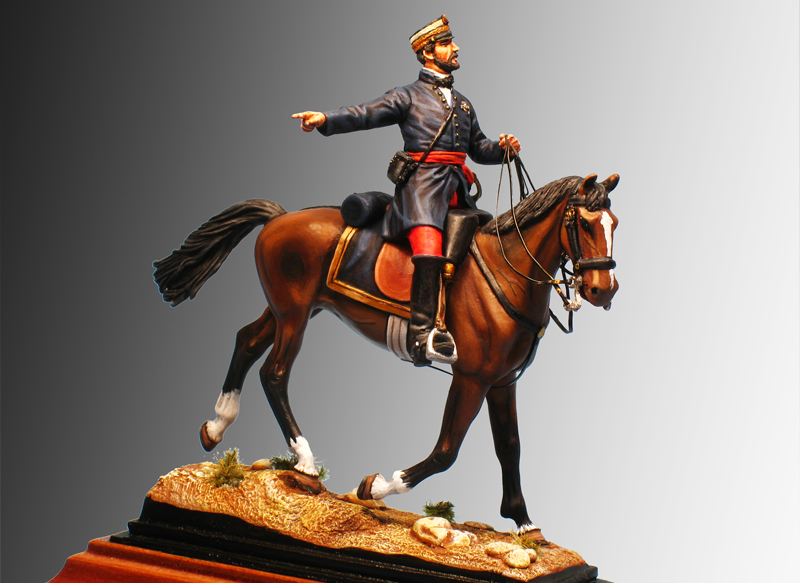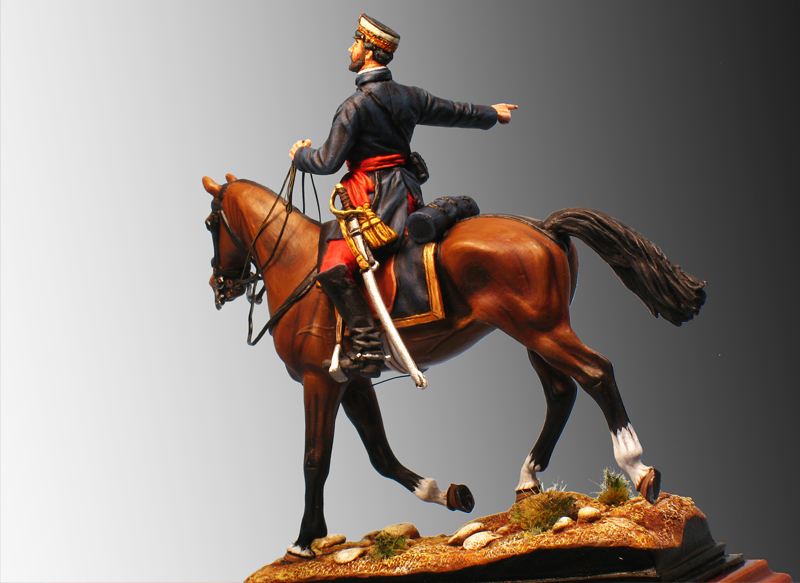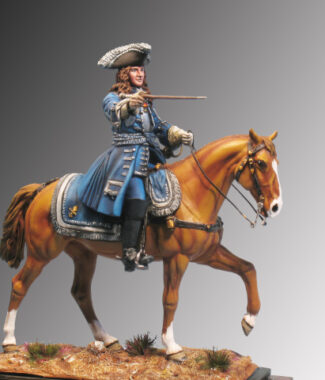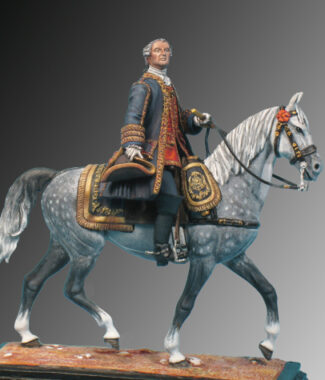You must be logged in to post a review.
€89.00
Figure to assemble and paint
Ref.: 06 – GE
Weight: 250 grs.
Material: White Metal
Number of Pieces: 12
Historical Review:
Juan Prim y Prats, 1st Count of Reus, 1st Marquess of los Castillejos, 1st Viscount of Bruch (6 December 1814 – 30 December 1870) was a Spanish general and statesman who was briefly Prime Minister of Spain until his assassination.
Prim was the son of lieutenant colonel Pablo Prim. He entered the free corps known as the volunteers of Isabella II in 1834, and in the course of the First Carlist War he rose to the rank of lieutenant-colonel and had two orders of knighthood conferred upon him. After the pacification of 1839, as a progressist opposed to the dictatorship of General Espartero, he was sent into exile. However, in 1843 he was elected deputy for Tarragona, and after defeating Espartero at Bruch he entered Madrid in triumph with General Serrano. The regent Maria Christina promoted him major-general, and made him Count of Reus and Viscount of Bruch. General Narváez, the prime minister, failed to understand what constitutional freedom meant, and General Prim, on showing signs of opposition, was sentenced to six years’ imprisonment in the Philippine Islands. The sentence was not carried out, and Prim remained an exile in England and France until the amnesty of 1847. He then returned to Spain, and was first employed as captain-general of Puerto Rico (Governor of Puerto Rico) and afterwards as military representative with the sultan during the Crimean War. In 1854 he was elected to the parliament, and gave his support to General O’Donnell, who promoted him lieutenant-general in 1856. In the war with Morocco (1859-60) he did such good service at Castillejos, Cabo Negro, Guad al Gelu an Wad-Ras. In 1860 that he was made marqués de los Castillejos (Marquess of los Castillejos). Prim commanded the Spanish expeditionary army in Mexico in 1862, when Spain, Great Britain, and France sought forced payment from the liberal government of Benito Juárez for loans. Prim was a sympathizer with the Mexican liberal cause, thus he refused to consent to the ambitious schemes of French emperor Napoleon III, and withdrew Spanish forces following a meeting with Manuel Doblado. On Prim’s return to Spain he joined the opposition, heading uprising in Catalonia against generals Narváez and O’Donnell. All his attempts failed until the death of Narváez in April 1868, after which Queen Isabella became increasingly tyrannical, until at last even Serrano was exiled. In September 1868 General Serrano and General Prim returned, and Brigadier Topete, commanding the fleet, raised the standard of revolt at Cádiz. In July 1869 General Serrano was elected regent, and Prim became president of the council and was made a marshal. On November 6, 1870 Amadeo, Duke of Aosta, was elected King of Spain, but General Prim, upon leaving Parliament on December 28, was shot by unknown men and died two days later. Parliament took his sons as wards of the country; three days later, King Amadeo swore in the presence of the corpse to observe the new Spanish constitution. This is due to the fact that Prim had searched various European courts of the time trying to find a monarch who was not opposed to being democratically elected. He is quoted for saying that “looking for a democratic monarch in Europe is like trying to find an atheist in heaven.” After France rejected the nearly elected Leopold of Hohenzollern for fear that Prussia might become more powerful, Amadeus of Savoy was chosen. The figure wears the uniform used in the African campaign (1859-60). The new regulation had adopted as a campaign and drill uniform, the new crossed frock coat with open lapels. Prim, however, on this occasion, as later in Mexico or in the Peninsula, preferred the closed frock coat, initially without embroidery on the neck and later with them. In paintings and engravings of the time, Prim can always be seen, with the Laureate Cross of Saint Ferdinand that he had obtained in The Taking of Saint Michael of Serradell, where he personally captured the flag of the fourth Carlist battalion of Catalonia. General’s sash, high boots and the Leopoldina (a smaller hat than that of the troop, whose name corresponds to Leopoldo O’Donnell, who had adopted it for the first time). On the horse, we can see the shabrack and pistols holsters used in the campaign, together with saddlebag.
The Price is not inclusive of shipping costs
5% for orders over 95,00€
10% for orders over 185,00 €
15% for orders over 275,00 €
- The discount fees are exclusively on items, without shipping costs -






Reviews
There are no reviews yet.